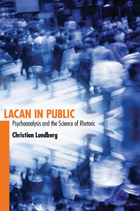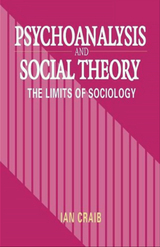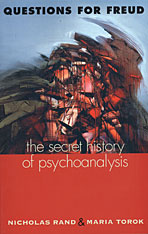
In this challenging collection of essays, the noted historian and philosopher of science John Forrester delves into the disputes over Freud's dead body. With wit and erudition, he tackles questions central to our psychoanalytic century's ways of thinking and living, including the following: Can one speak of a morality of the psychoanalytic life? Are the lives of both analysts and patients doomed to repeat the incestuous patterns they uncover? What and why did Freud collect? Is a history of psychoanalysis possible?
By taking nothing for granted and leaving no cliché of psychobabble--theoretical or popular--unturned, Forrester gives us a sense of the ethical surprises and epistemological riddles that a century of tumultuous psychoanalytical debate has often obscured. In these pages, we explore dreams, history, ethics, political theory, and the motor of psychoanalysis as a scientific movement.
Forrester makes us feel that the Freud Wars are not merely a vicious quarrel or a fashionable journalistic talking point for the late twentieth century. This hundred years' war is an index of the cultural and scientific climate of modern times. Freud is indeed a barometer for understanding how we conduct our different lives.

Lacan in Public argues that Lacan’s contributions to the theory of rhetoric are substantial and revolutionary and that rhetoric is, in fact, the central concern of Lacan’s entire body of work.
Lacan’s conception of rhetoric, Christian Lundberg argues in Lacan in Public, upsets and extends the received wisdom of American rhetorical studies—that rhetoric is a science, rather than an art; that rhetoric is predicated not on the reciprocal exchange of meanings, but rather on the impossibility of such an exchange; and that rhetoric never achieves a correspondence with the real-world circumstances it attempts to describe.
As Lundberg shows, Lacan’s work speaks directly to conversations at the center of current rhetorical scholarship, including debates regarding the nature of the public and public discourses, the materiality of rhetoric and agency, and the contours of a theory of persuasion.


With all the intrigue and twists of a mystery, Questions for Freud uncovers the paradoxes that riddle psychoanalysis today and traces them to Freud's vacillation at key points in his work--and from there to a traumatic event in Freud's life.
What role did censored family history play in shaping Freud's psychological inquiries, promoting and impeding them by turns? With this question in mind, Nicholas Rand and Maria Torok develop a new biographical and conceptual approach to psychoanalysis, one that outlines Freud's contradictory theories of mental functioning against the backdrop of his permanent lack of insight into crucial and traumatic aspects of his immediate family's life. Taking us through previously unpublished documents and Freud's dreams, his clinical work and institutional organization, the authors show how a shameful event in 1865 that shook Freud and his family can help explain the internal clashes that later beset his work--on the origins of neurosis, reality, trauma, fantasy, sexual repression, the psychoanalytic study of literature, and dream interpretation.
Steeped in the history, theory, and practice of psychoanalysis, this book offers a guide to the wary, a way of understanding the flaws and contradictions of Freud's thought without losing sight of its significance. This book will alter the terms of the current debate about the standing of psychoanalysis and Freud.

Lying on the couch, the patient must tell all. And yet, as the psychoanalyst well knows, the patient is endlessly unable--unwilling--to speak the truth. This perversity at the heart of psychoanalysis, a fine focus on intimate truths even as the lines between truth and lies are being redrawn, is also at the center of this book of essays by the renowned historian of psychoanalysis John Forrester. Continuing the work begun in Dispatches from the Freud Wars, Truth Games offers a rich philosophical and historical perspective on the mechanics, moral dilemmas, and rippling implications of psychoanalysis.
Lacan observed that the psychoanalyst's patient is, even when lying, operating in the dimension of truth. Beginning with Lacan's reading of Freud's case history of the Rat Man, Forrester pursues the logic and consequences of this assertion through Freud's relationship with Lacan into the general realm of psychoanalysis and out into the larger questions of anthropology, economics, and metaphysics that underpin the practice. His search takes him into the parallels between money and speech through an exploration of the metaphors of circulation, exchange, indebtedness, and trust that so easily glide from one domain to the other.
Original, witty, incisive, these essays provide a new understanding of the uses and abuses and the ultimate significance of truth telling and lying, trust and confidence as they operate in psychoanalysis--and in the intimate world of the self and society that it seeks to know.
READERS
Browse our collection.
PUBLISHERS
See BiblioVault's publisher services.
STUDENT SERVICES
Files for college accessibility offices.
UChicago Accessibility Resources
home | accessibility | search | about | contact us
BiblioVault ® 2001 - 2024
The University of Chicago Press









